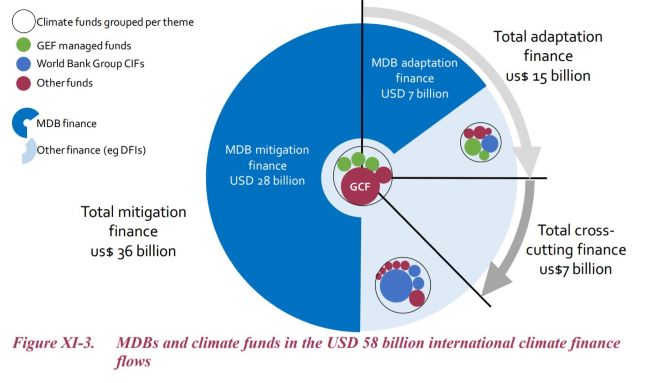

The United Nations’ Green Climate Fund has changed its rules so no single country can block finance, as recently it happened when the US intervened in a Chinese bid. The decision was made after intense negotiations and it was decided that a voting system will be deployed if and when consensus fails.
“This was a huge trust-building exercise and acknowledgment that the future of the fund is better built together than against each other,” wrote Liane Schalatek, an observer from the Heinrich Böll Foundation, from the GCF headquarters in Songdo, South Korea. “‘Historic’ is probably correct.”
In 2018, the US board member was able to block a Chinese project – despite his country reneging on a pledged $2 billion contribution. In 2017, the UK refused to back grants for rural development in Argentina and Paraguay.


This time group of eight board members thrashed out rules allowing decisions to be made with an 80% majority, a higher threshold than the two thirds originally proposed. Consensus remains the preferred option.
“It was encouraging to see the board come together and fulfill this mandate from its founding instrument,” said Niranjali Amerasinghe of the World Resources Institute (WRI), adding that attention must now turn to “an ambitious replenishment” of the fund’s cash reserves.
U.N. Green Climate Fund Okays US$267 Mln for 10 projects
Additionally. The U.N. Green Climate Fund approved US$267 million in funding for 10 new projects in developing countries to help them deal with climate change, South Korea’s finance ministry said Tuesday. The projects include a water supply project worth $25 million in the Republic of the Marshall Islands, according to the Ministry of Economy and Finance.
The 10 new project approvals bring the Green Climate Fund’s portfolio to a total of 111 projects and programs, committing around $5.2 billion of the fund’s resources to climate action in about 100 developing countries.
It is reaching the bottom of its $10.3bn starting capital faster than expected, due to currency fluctuations and the US withholding money.
On this, a performance review sets a positive undertone. Though it came with few recommendations: 1. to channel more funds direct to the front lines of climate impacts and to strengthen the role of the private sector. 2. Work on expediting disbursement of funds already approved.
Analysis by WRI before the latest meeting found the GCF had disbursed 10% of approved funding in its first four years of operation, compared to 17% for the Climate Investment Funds (Cifs), 26% for the Global Environment Facility and 42% for the Adaptation Fund. On this, the Green Climate Fund maintains that the conditions are improving and by the end of the year their performance will also match up with Cifs.
1. The mandate for blending Compressed Biogas (CBG) with natural gas has come into effect…
Andhra Pradesh is striving towards greening its energy sector with quite some speed. In a…
With an objective to bolster India’s green energy goals, a Tripartite Agreement has been signed…
The Union MNRE Minister Pralhad Joshi launched the Green Hydrogen Certification Scheme of India (GHCI)…
India’s energy conglomerate Bharat Petroleum Corporation Limited (BPCL) has commissioned a 5MW green hydrogen plant…
In a historical development, the European Space Agency (ESA) has successfully launched its pioneering ‘Biomass’…